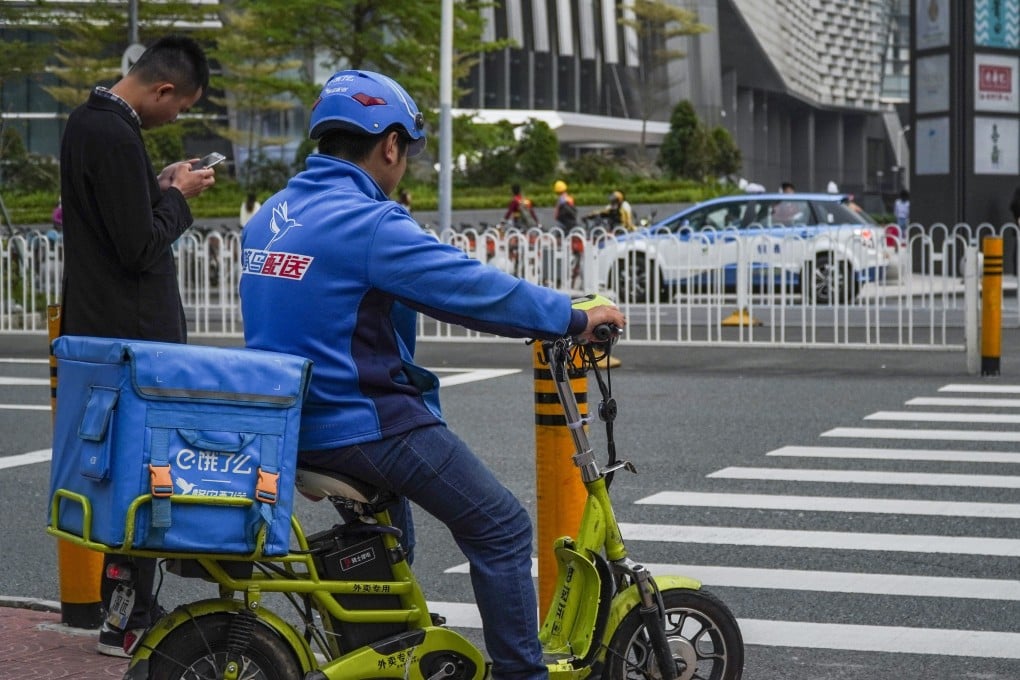Food delivery workers want more legal protections after Ele.me driver sets himself on fire to protest unpaid wages
- Ele.me promises safety upgrades after a self-immolation and the death of a driver has again put gig economy in the national spotlight
- More than 60 per cent of delivery drivers do not have access to social security in China, a legally mandated expense that employers sidestep with gig workers

Recent tragedies in China‘s food delivery industry have again pushed the gig economy into the spotlight, as the public contemplates the plight of the nation’s delivery drivers and some gig workers call for better legal protections.
Back-to-back incidents involving couriers for Ele.me – the food delivery company owned by Alibaba Group Holding, the parent company of the South China Morning Post – became the most recent catalyst for online debate. Two weeks ago, a delivery driver died while on the job. Then last week, a 48-year-old courier surnamed Liu set himself on fire in protest over unpaid wages.
The courier from southwest Yunnan province was working in Taizhou, a city in the coastal province Jiangsu, north of Shanghai. He worked for a third-party employment company delivering orders for Ele.me, according to a statement from the government published on its official WeChat account last week. Liu is being treated at a local hospital and is in stable condition, the government said.
“If you don’t make some noise like this, no one will care about you. He must have been desperate,” said a 36-year-old named Hu, who works as a courier in Zhangjiakou, Hebei. Hu has also worked as a courier in Beijing for five years, he said
“The government should legislate to protect our rights, even if we are employees for third-party platforms,” said another courier named Pei, an Ele.me gig worker in his 30s. “They can’t just turn a blind eye to us like they are doing right now.”